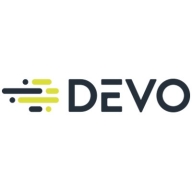

Devo and Logz.io are popular log management and analytics platforms. Logz.io appears to have the upper hand due to its advanced features and overall performance.
Features: Devo offers scalability, comprehensive integration capabilities, and competitive pricing. Logz.io provides powerful analytics tools, user-friendly search functionality, and advanced features.
Room for Improvement: Devo could improve data retention policies, query speed, and performance. Logz.io could enhance integration with third-party apps, documentation, and compatibility with support resources.
Ease of Deployment and Customer Service: Devo is straightforward to deploy with responsive customer service. Logz.io is easy to deploy but occasionally experiences delays in customer support.
Pricing and ROI: Devo offers lower initial setup costs, making it appealing for budget-conscious users, with good ROI. Logz.io has higher setup costs, but users find the ROI justified by its advanced features.
This is particularly evident when dealing with failed login attempts and determining true versus false positives.
When they see a spike in a line chart for a failed login, which could be a true or false attempt, they can click that spike, and a table widget on the same active board instantly populates with raw logs of data for those specific failed logins.
| Product | Market Share (%) |
|---|---|
| Devo | 0.7% |
| Logz.io | 0.7% |
| Other | 98.6% |

| Company Size | Count |
|---|---|
| Small Business | 8 |
| Midsize Enterprise | 4 |
| Large Enterprise | 11 |
| Company Size | Count |
|---|---|
| Small Business | 3 |
| Midsize Enterprise | 1 |
| Large Enterprise | 7 |
Devo is the only cloud-native logging and security analytics platform that releases the full potential of all your data to empower bold, confident action when it matters most. Only the Devo platform delivers the powerful combination of real-time visibility, high-performance analytics, scalability, multitenancy, and low TCO crucial for monitoring and securing business operations as enterprises accelerate their shift to the cloud.
Logz.io is a leading cloud-native observability platform that enables engineers to use the best open source tools in the market without the complexity of operating, managing, and scaling them. Logz.io offers four products: Log Management built on ELK, Infrastructure Monitoring based on Prometheus, Distributed Tracing based on Jaeger, and an ELK-based Cloud SIEM. These are offered as fully managed, integrated cloud services designed to help engineers monitor, troubleshoot and secure their distributed cloud workloads more effectively. Engineering driven companies like Siemens, Unity and ZipRecruiter use Logz.io to simplify monitoring and security workflows, increasing developer productivity, reducing time to resolve issues, and increasing the performance and security of their mission-critical applications.
We monitor all Log Management reviews to prevent fraudulent reviews and keep review quality high. We do not post reviews by company employees or direct competitors. We validate each review for authenticity via cross-reference with LinkedIn, and personal follow-up with the reviewer when necessary.